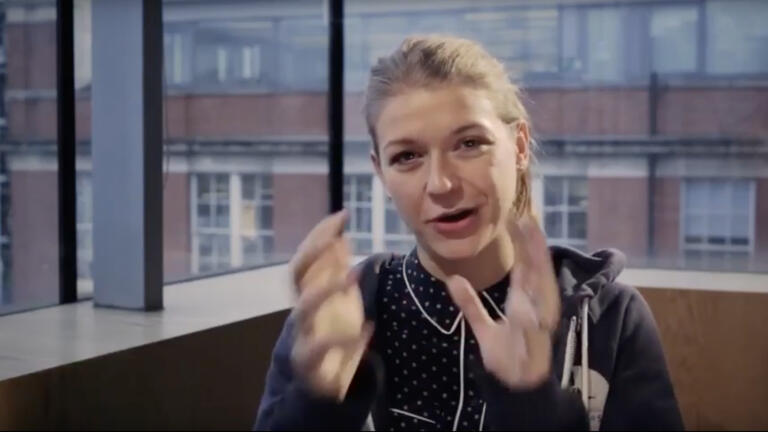Associate Director
“As Associate Director my job in the rehearsal room is to be an asset to the director and serve as a second set of ears and eyes. Now that we’re into performances, my job is to come in, watch the show and maintain the work that we’ve done in rehearsals and previews and also to rehearse the understudy company.”
Lisa Blair
Role
An Associate Director assists the director, helping him/her realise their creative vision. For this reason they are sometimes called Assistant Directors. Depending on the scale of the production and size of the team, an Associate Director may lead separate understudy rehearsals, undertake research for rehearsals and complete administrative duties. Many progress to being directors.
Responsibilities
- Research prior to rehearsals on the background to a play, including historical context and details about any real-life characters
- Preparation of rehearsal materials as a result of above – e.g. notes, books, DVDs, etc. of interest
- Assisting the director in the rehearsal room, making notes and finding answers to questions that may arise out of discussions between the director and actors
- Leading rehearsals with the understudies, separate to the main rehearsals
Key Skills
Training
Many courses in directing for theatre are now available. These are often post-graduate courses and students have already studied a first degree, directing productions at university as part of a drama course, or separate to their studies as an active member of a drama society.
Early productions might be staged at festivals, such as the Edinburgh Fringe in the UK, or small fringe venues. Assisting established directors or getting a traineeship within a theatre is a good way to progress to the next level, learning from experienced practitioners whilst developing a network of contacts.
Courses
Other courses are available. Those above represent a sample from various drama schools and universities.
Further Reading
- Directing a Play – Phaidon Theatre Manual by Michael McCaffery, 1988
- The Director’s Craft – A Handbook for the Theatre by Katie Mitchell, 2008
- Theatre Craft – A Director’s Practical Companion from A to Z by John Caird, 2010

